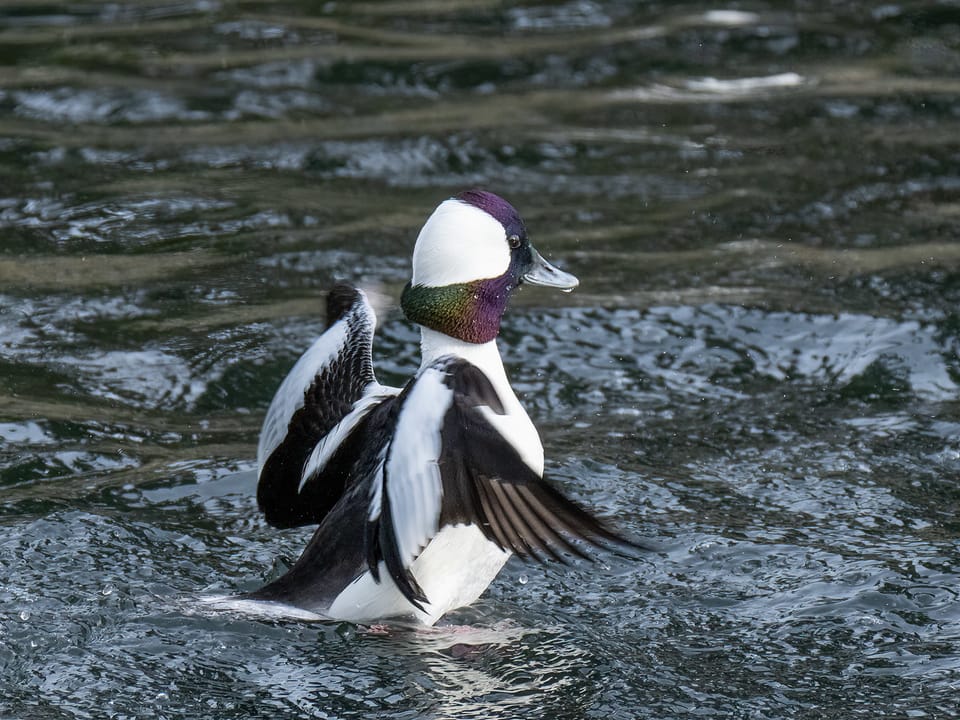EcoWest News, April 5, 2022

Welcome to EcoWest News, a weekly round-up of news and resources that you can put to use in addressing environmental issues and protecting the wild in your community.
Across the West
25 years ago, Leaf Rapids, Manitoba, became the first North American town to ban plastic bags. [CBC Manitoba]
Oil drilling is fragmenting Alberta’s boreal forest, leading to higher levels of predation as animals bunch together. [The Revelator]
The Alberta Native Plant Council is encouraging members to create and maintain a native plant garden by providing them with a toolkit, online resources, and sharing opportunities. [Alberta Native Plant Council]
The latest version of the National Model Building Codes for new buildings includes performance tiers as a pathway to a net-zero energy-ready standard and is similar to BC’s Energy Step Code. [Efficiency Canada]
Cruise ship season opens this week, bringing with it massive pollution, particularly in marine protected areas, from dumping of scrubber washwater, greywater, sewage, and bilge water. Stricter standards and enforcement are urgently required. [World Wildlife Federation]
Indigenous-led short-term population recovery actions paired with long-term habitat protection is leading to rapid population growth of the nearly-extirpated Klinse-Za mountain caribou. [Ecological Society of America]
Around the World
Austria will subsidize 50% of repair costs for electronic and electrical equipment, capped at €200 per repair from now until 2026. It’s expected to lead to more repair shop customers, better-quality repairs, and new job opportunities. [The Revelator]
We’re losing our sonic landscape, in part because we no longer listen. “When the most powerful species on Earth ceases to listen to the voices of others, calamity surely will ensue.” [Yale Environment 360]
Wetlands
Urbanization has reduced Calgary’s wetlands by 90% with very little known about the local amphibian population. Miistakis Institute developed an 8-step urban amphibian conservation framework, which was implemented in Calgary, leading to greater knowledge, the development of conservation goals, and community engagement. [British Ecological Society]
The Saskatchewan community of Riverhurst has restored a former wetland, complete with plantings of trees and native pollinators, paths and signage, benches, and a viewing platform. [Village of Riverhurst]
Research Matters
Canada’s Future in a Net Zero World concludes that Canada needs a more coordinated, strategic approach to position its industries for a green economy. This would include establishing innovation clusters that encompass the full development chain from research to delivery in sectors such as net-zero aluminum refining and manufacturing medium/heavy duty EVs. [Pacific Institute for Climate Solutions]
On the Bookshelf
In EverGreen: Saving Big Forests to Save the Planet, John Reid and Thomas Lovejoy state that the world’s biggest forests, including Canada’s boreal forest, must be kept intact to address the climate challenge. Intact forests cool the planet and the local ecosystem. Fragmenting the forest warms it. [excerpt, The Atlantic]
Nature’s Wonders
Are robins a sign of spring? Yes – and no. It all depends on the food supply. [Audubon]
Bigg's whales hunt marine mammals and are thriving because of an abundance of seals and sea lions in the Salish Sea. [CBC British Columbia]
Once thought extinct, the Taylor’s checkerspot butterfly is making a comeback with reintroduction initiatives on Hornby and Denman Islands. [Times Colonist]
Freedom! 17 years ago, Flamingo no.492 escaped a Kansas zoo—it’s still a fugitive. [Adventure Journal]
Photo credit: https://www.flickr.com/photos/apmckinlay/51974491313/
EcoFriendly West informs and encourages initiatives that support Western Canada’s natural environment. Like us on Facebook, follow us on Twitter, or subscribe by email.

Member discussion